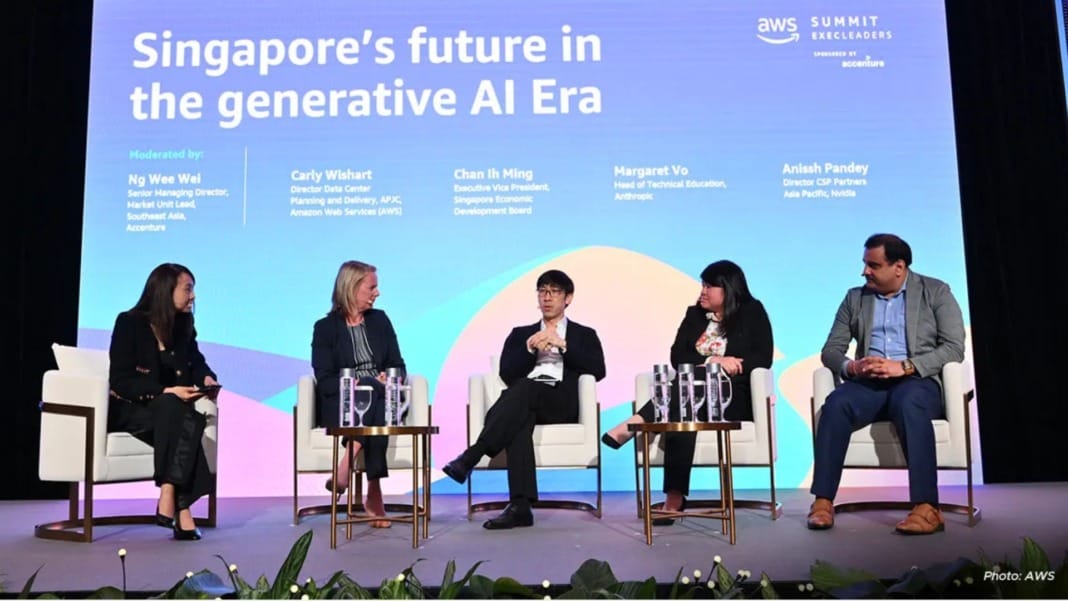Companies and government agencies in Singapore are increasingly using artificial intelligence (AI) to enhance work efficiency and improve business outcomes. This trend was highlighted at Microsoft’s AI Tour in Singapore, where industry leaders shared their experiences of AI adoption and its impact on operations.
Speaking at the event, Microsoft ASEAN President Andrea Della Mattea emphasised how Singapore businesses recognise the benefits of generative AI in streamlining processes and boosting competitiveness. Mattea also discussed the rise of AI agents and their ability to integrate Copilot into business operations. These AI tools connect to data and applications, automate processes, and support employees by handling repetitive tasks.
Companies share success stories of AI implementation
During a panel on AI innovation, executives from major companies shared their experiences using AI to improve efficiency and drive growth. Keith Leong, Managing Director at Singtel, explained how the company leverages AI for network optimisation, scam detection, and customer service. These AI-driven improvements have led to significant cost savings and revenue increases. Leong also stressed the importance of investing in AI talent and having a strong data foundation to support AI adoption.
Leong highlighted the key to aligning AI initiatives with company goals as having clear timelines and business objectives. He also underlined the importance of choosing the right technology partner to ensure continuous innovation.
Quah Ley Hoon, Group Chief Corporate Officer at CapitaLand, discussed how the property company has successfully integrated Copilot into its operations. She explained that AI adoption at CapitaLand focuses on increasing efficiency, enhancing customer experience, and driving revenue growth. To encourage AI adoption, the company set a target of implementing 100 AI use cases, aiming to make AI a core part of the company’s culture rather than just a technical initiative.
Rajesh Sreenivasan, Partner at law firm Rajah & Tann, described how AI is being used to streamline legal workflows. The firm has introduced AI tools for drafting documents, summarising legal opinions, and capturing meeting notes, resulting in a 30% time-saving across these tasks. Sreenivasan noted that proper data governance is crucial to manage sensitive legal information securely.
“If you have a team of 20 people supporting one senior counsel, and each staff member saves 30% of their time, the return on investment (ROI) is significant,” he said.
Government agencies explore AI for efficiency
Another panel, “From hype to habit: The real value of Generative AI at work,” focused on AI adoption within government agencies. Participants included Hitesh Bhilcabhai from Microsoft, Joseph Tan, and Christina Seah from the Infotech and Digital Transformation Department, who represent statutory boards HTX and PUB, respectively.
Seah explained that implementing AI in the public sector is more complex than in private businesses. PUB officers involved in the Copilot trial mainly used AI to write reports and summarise meeting notes in Microsoft Word and Teams. “Copilot helps officers summarise and refine their writing, making reports clearer and reducing review time,” Seah noted.
Tan highlighted the impact of Copilot at HTX, particularly in helping public officers manage cases more efficiently. He recalled that when ChatGPT was first introduced, public service workers had limited access to AI tools. With Copilot integrated into their systems, they can click a button to receive AI assistance, improving their workflow and productivity.
As AI continues transforming workplaces in Singapore, businesses and government agencies are finding innovative ways to leverage its capabilities. With ongoing investment in AI talent and technology, Singapore is positioning itself as a leader in AI-driven efficiency and productivity.





